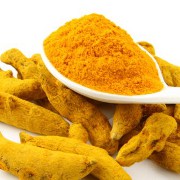 Photo: Getty Images
Photo: Getty Images
Living with chronic pain? Blame inflammation.
Research from the University of Leeds at its Faculty of Biological Sciences has given us a new window into the pain and inflammation conundrum. Pain originates from electrical signals sent by neurons (nerve cells) to the central nervous system, which takes these signals on home to the brain.
Some pain is good pain, which sends the alarm that there is potential danger to the body. Touching a hot stove, stepping on a nail, will send some very useful pain messages to the brain, which will elicit some immediate action.
Inflammation muddies the issue however. Pain caused by inflammation due, for instance, to a sore throat or arthritis can last longer than necessary, and may cause as many problems as it prevents.
This research from the University of Leeds has revealed the existence of a peptide called bradykinin which is released in areas of inflammation. Bradykinin influences two proteins which tell the nearby nerve cells to scream "Pain!" to the brain.
The two proteins are calcium-activated chloride channel Ano1, and M-type potassium channel. Neither of these proteins were previously known to be linked to pain transmission.
eHow.com has some practical suggestions to lessen your inflammation load. Plenty of sleep will do more than just rest your eyes since lack of sleep may cause a significant increase in inflammation.
Avoiding sugar and simple carbohydrates can make a difference. Controlling blood sugar and insulin levels can help to control chronic inflammation. Become familiar with foods that are low on the glycemic scale.
These dietary maneuvers can help to keep you at a healthy weight as well. Carrying extra fat also produces greater inflammation.
Consider adding supplements that have anti-inflammatory properties to your diet. Fish oil contains omega-3 essential fatty acids which reduce inflammation. Vitamin E and turmeric can also aid in the battle against pain and inflammation.
Curcumin is the ingredient that gives turmeric its distinctive yellow-orange color. It also relieves pain and inflammation. According to Dr. Joseph Mercola, curcumin has been found to reduce pain, redness, heat and swelling, while it facilitates greater mobility in osteoarthritis patients.
Curcumin is a safer treatment than non-steroidal anti-inflammatories (NSAIDs) and analgesics. Curcumin does not bring with it risk of cardiovascular, gastrointestinal or liver damage.
Curcumin may also be helpful for cataracts, Crohn's disease, cystic fibrosis, gallstones, inflammatory bowel disease, muscle regeneration, psoriasis, rheumatoid arthritis and type 2 diabetes.
Turmeric can be used in cooking and can also be taken as a supplement. Please check with your health care professional for guidance on how much of these natural supplements to take.
Resources:
Inflammation Research Opens Route to Better Pain Relief
http://www.sciencedaily.com/releases/2010/03/100324174045.htm
How to Control Inflammation and Pain
http://www.ehow.com/how_5851138_control-inflammation-pain.html
Curcumin Relieves Pain and Inflammation for Osteoarthritis Patients
http://articles.mercola.com/sites/articles/archive/2011/01/31/curcumin-relieves-pain-and-inflammation-for-osteoarthritis-patients.aspx
Edited by Alison Stanton
Visit Jody's website and blog at http://www.ncubator.ca and http://ncubator.ca/blogger





Add a Comment1 Comments
Valuable information..Educative and precious..what else to say..This is my article about Chronic Inflammation,Granulomatous Dieases,Tuberculosis Pathology.read it i think you mit have sthg to enjoy..http://dentistryandmedicine.blogspot.com/2011/06/chronic-inflammationgranulomatous.html
June 9, 2011 - 10:42amThis Comment